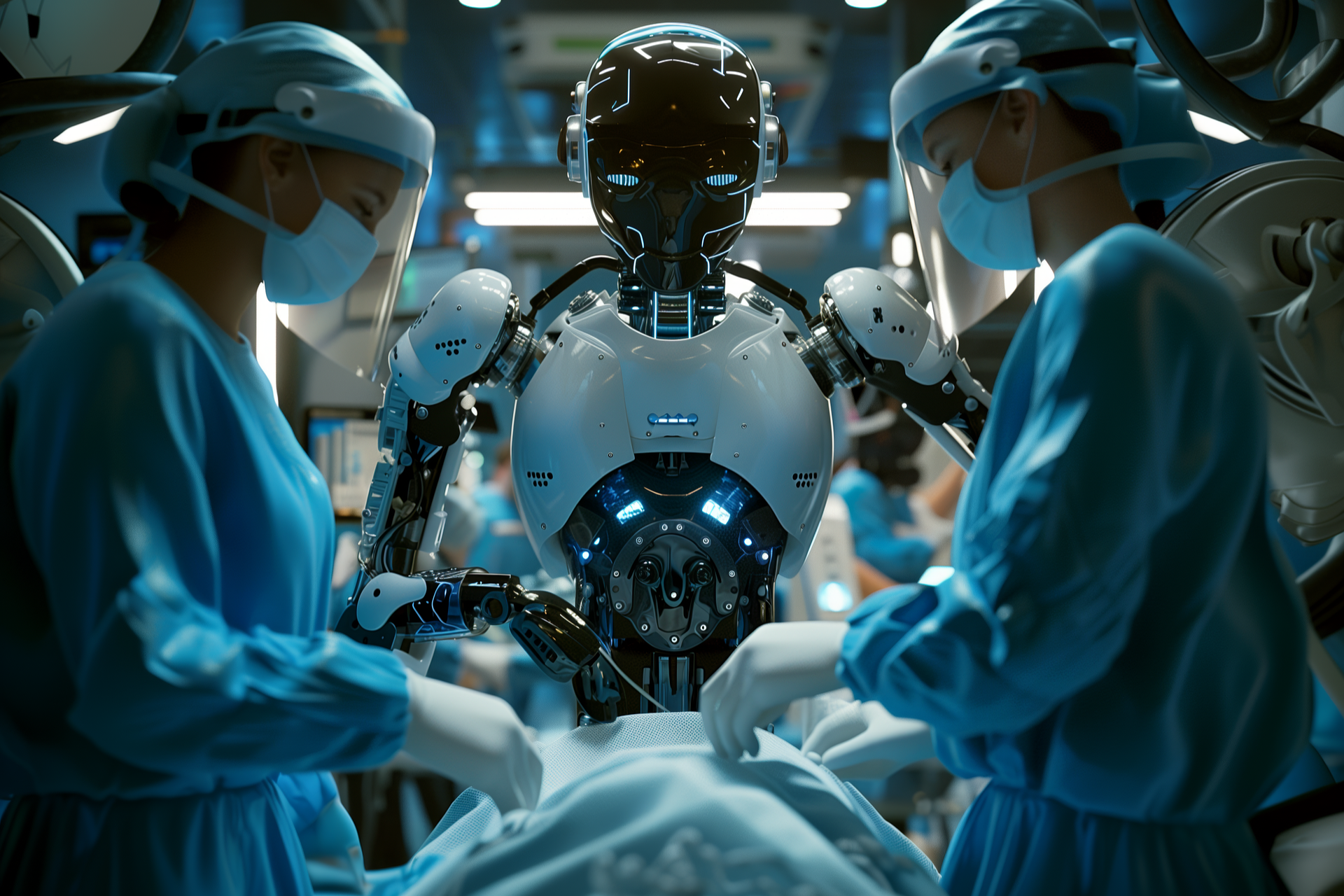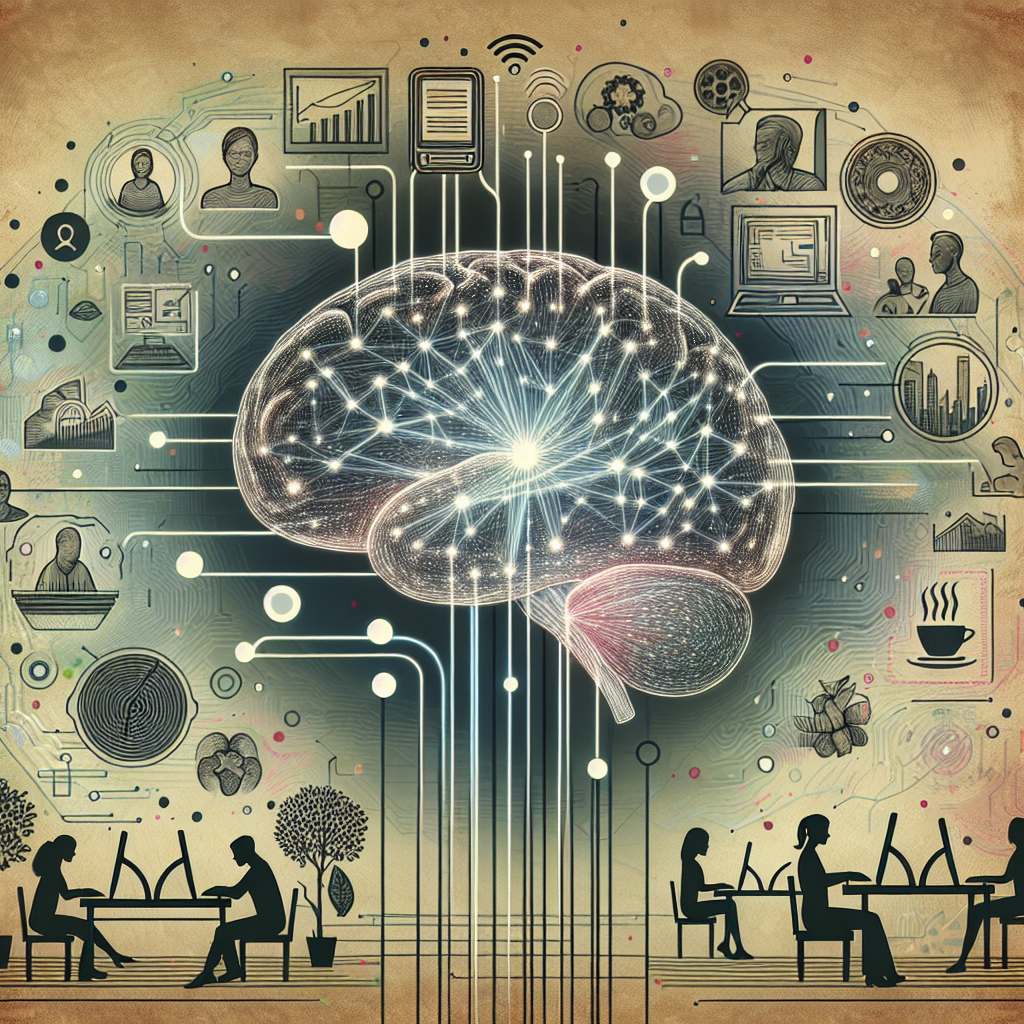Artificial Intelligence (AI) is profoundly impacting the healthcare industry, driving innovations that enhance the quality of care and operational efficiency. By leveraging advanced algorithms and data analytics, AI is revolutionizing diagnostics, treatment, and patient management, providing a more personalized and effective healthcare experience.
The Rise of Artificial Intelligence in Healthcare
Defining Artificial Intelligence (AI)
AI in healthcare involves the development and application of intelligent algorithms that perform tasks typically requiring human intelligence. These technologies include:
- Machine Learning (ML): Systems that learn from data and improve over time without explicit programming.
- Natural Language Processing (NLP): Technologies that enable machines to understand and interpret human language, facilitating better communication between patients and healthcare systems.
- Robotics: Automated systems designed to perform tasks such as surgery or routine procedures with precision.
AI’s integration into healthcare is designed to solve complex problems, improve patient outcomes, and streamline operations.
The Evolution of AI in Medicine
AI’s role in medicine has evolved significantly:
- Early Beginnings: Initially used for simple data analysis and pattern recognition.
- Advanced Applications: Today’s AI systems are capable of interpreting complex medical data, such as medical images and genetic information, and providing insights that were previously unattainable.
AI technologies are becoming integral to various medical applications, including diagnostic imaging, predictive analytics, and personalized medicine.
AI in Medical Diagnosis
Enhancing Diagnostic Accuracy
AI improves diagnostic accuracy through advanced machine learning models that analyze large volumes of medical data.
AI and Medical Imaging
AI’s application in medical imaging is transforming diagnostics by:
- Detecting Abnormalities: AI algorithms can identify abnormalities in X-rays, MRIs, and CT scans more accurately than traditional methods.
- Reducing Diagnostic Time: Faster analysis of medical images accelerates diagnosis and treatment initiation.
Comparison of AI vs. Human Radiologists in Diagnostic Accuracy
| Imaging Type | AI Accuracy | Human Accuracy |
| X-Ray | 95% | 90% |
| MRI | 97% | 92% |
| CT Scan | 96% | 89% |
AI’s superior accuracy helps reduce false positives and negatives, leading to more reliable diagnoses.
AI in Pathology
AI significantly enhances pathology by analyzing tissue samples to identify cancerous cells, which improves diagnostic accuracy. Additionally, it accelerates the diagnostic process, reducing the time pathologists spend on manual examination and leading to quicker diagnoses and treatments.
Early Disease Detection
Early disease detection is crucial for improving patient outcomes and survival rates. AI plays a pivotal role in this area by using predictive analytics to analyze diverse datasets, including genetic and lifestyle information. This analysis helps in identifying risk factors for diseases such as cancer and recommending early screening tests based on individual risk profiles.
Predictive Analytics in Cancer
AI-driven predictive analytics tools are instrumental in cancer detection. They analyze various datasets to identify patterns that indicate an increased risk of cancer. This allows for earlier intervention through recommended screening tests, which is crucial for successful treatment and improved survival rates.
AI for Early Detection of Heart Disease
AI systems utilize data from multiple sources, such as wearable devices and electronic health records, to predict heart disease. By analyzing trends and patterns in patient data, AI assesses the risk of heart disease and facilitates timely interventions, including lifestyle changes and medical treatments, to prevent its onset. AI’s ability to process vast amounts of data swiftly supports earlier detection and prevention strategies, ultimately saving lives.
AI in Treatment and Personalized Medicine
Tailoring Treatments with AI
AI enables personalized medicine by customizing treatments based on individual patient profiles.
Precision Medicine
Precision medicine leverages AI to:
- Analyze Genetic Data: Use genetic information to tailor treatments to each patient’s unique genetic makeup.
- Enhance Treatment Efficacy: Ensure that treatments are more effective and have fewer side effects by aligning them with individual patient characteristics.
Precision medicine represents a shift from the one-size-fits-all approach to a more individualized strategy, improving treatment outcomes.
AI in Drug Discovery
AI accelerates drug discovery by:
- Predicting Drug Interactions: Analyze how different compounds interact with biological targets, identifying potential new drugs more efficiently.
- Reducing Development Time: Streamline the drug discovery process, cutting down the time and cost required to bring new drugs to market.
AI’s role in drug discovery has the potential to revolutionize the pharmaceutical industry, leading to faster development of life-saving medications.
Robotic Surgery
AI-powered robotic systems are enhancing surgical procedures with improved precision and control.
Advantages of Robotic Surgery
- Increased Precision: Robotic systems allow for highly accurate movements, reducing the risk of surgical errors.
- Minimally Invasive: Small incisions lead to reduced recovery times and less postoperative pain.
- Enhanced Visualization: Provides surgeons with detailed, 3D views of the surgical area, improving their ability to navigate complex procedures.
Case Studies and Success Stories
- Case Study 1: Robotic-assisted prostatectomy resulted in shorter hospital stays and faster recovery for patients compared to traditional surgery.
- Case Study 2: Minimally invasive heart surgeries performed with robotic assistance have shown improved patient outcomes and reduced complications.
AI in Patient Care and Management
Virtual Health Assistants
AI-powered virtual health assistants are enhancing patient engagement and care management by providing immediate responses to health-related queries and helping users evaluate symptoms to determine the next steps, such as scheduling appointments or seeking emergency care.
AI for Patient Monitoring
AI systems support continuous patient monitoring by tracking vital signs and other health metrics in real-time, offering a comprehensive view of a patient’s health. These systems also include alert mechanisms to notify healthcare providers of significant changes in patient conditions, facilitating timely interventions.
Managing Chronic Diseases with AI
AI aids in managing chronic conditions through various tools and insights designed to improve patient care. In diabetes management, AI systems offer continuous glucose monitoring and provide personalized management plans based on individual glucose patterns and health data. For respiratory conditions, AI algorithms predict potential exacerbations using data from monitoring devices and enable remote monitoring of symptoms and medication adherence, offering ongoing support to patients with chronic respiratory issues.
AI in Healthcare Administration
Streamlining Administrative Tasks
AI is transforming administrative processes in healthcare, making them more efficient.
Automating Medical Records Management
- Error Reduction: AI automates data entry, reducing errors associated with manual record-keeping.
- Efficient Record Handling: Ensures patient records are accurate, up-to-date, and easily accessible.
AI for Scheduling and Resource Allocation
AI optimizes scheduling and resource allocation by:
- Improving Appointment Scheduling: Predict patient volumes and optimize scheduling to minimize wait times.
- Resource Management: Allocate staff and resources based on predicted needs, enhancing overall operational efficiency.
Enhancing Operational Efficiency
AI contributes to operational efficiency in healthcare facilities by improving various aspects of management. Predictive analytics is used to forecast staffing needs based on historical data and trends, ensuring optimal staffing levels while reducing overheads. In financial management, AI helps by optimizing the revenue cycle through analysis of billing processes and providing insights for better budget planning and resource allocation.
Challenges and Ethical Considerations
Data Privacy and Security
Ensuring Patient Data Protection
AI systems must adhere to stringent data protection measures to safeguard patient information. This includes:
- Robust Encryption: Protect sensitive data from unauthorized access and breaches.
- Compliance with Regulations: Ensure adherence to data protection laws such as GDPR and HIPAA to maintain patient trust.
Handling Sensitive Information
Effective management of sensitive health information involves:
- Controlled Access: Restrict data access to authorized personnel only.
- Breach Prevention: Implement comprehensive security strategies to prevent data breaches and protect patient privacy.
Bias and Fairness in AI Algorithms
Addressing Algorithmic Bias
To ensure fairness, AI systems must:
- Use Diverse Datasets: Train algorithms on a wide range of data to reduce biases and improve accuracy.
- Implement Fairness-Aware Algorithms: Design algorithms that actively address and mitigate bias in decision-making.
Ensuring Equity in AI Deployment
AI technologies must be deployed equitably to ensure all patient populations benefit:
- Regular Monitoring: Evaluate AI systems for potential disparities and make adjustments as needed.
- Inclusive Practices: Develop and implement AI solutions that serve diverse patient groups fairly and effectively.
Future Trends and Innovations
The role of AI in future healthcare models is set to expand as it continues to evolve and integrate with emerging technologies. AI will enhance healthcare delivery by incorporating technologies like blockchain to secure and validate health data transactions, the Internet of Things (IoT) to connect healthcare devices and systems for real-time data sharing, and telemedicine to provide remote consultations and digital health platforms.
AI also holds significant potential in global health. It can address global health challenges by analyzing health data to predict and manage disease outbreaks and by improving access to medical services in underserved and remote areas through AI-driven solutions. As technology advances, AI will increasingly shape the future of medicine, offering new opportunities to enhance patient care and health outcomes on a global scale.





